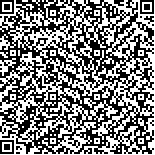| 摘要: |
| 从城市历史景观的“共时关联”视角,重
新认识“文态环境”理念对当代文化遗产保护的
整体建构意义与人文关联价值,结合中国古代人
文空间系统对文态环境作进一步的概念界定与
构成分析。聚焦孕育重庆山水人文精神的渝中古
城,选取张云轩所绘《重庆府治全图》(1886—
1891年)作为时空断面进行历史地图转译,综合
要素空间定位与地方志相关记载,剖析处于传统
营城末期的渝中古城文态环境整体关联模式,
总结为“大观”层次“山水关联、秩序关联”的全
局模式,以及“小观”层次“属性关联、方位关联、
形势关联、景境关联”的局部模式。最终以古代
文献语汇记载为依据,凝练“应山”“取象”“对
峙”等景观要素关联营建智慧,以期为当代重庆
高质量山水城市建设提供启示。 |
| 关键词: 城市历史景观 文态环境 重庆 渝中
古城 人文关联 |
| DOI:10.13791/j.cnki.hsfwest.20230417 |
| 分类号: |
| 基金项目: |
|
| Study on the Overall Correlation Construction of Yuzhong Ancient City’s Cultural Environment |
|
WANG Zheng,LIU Tong
|
| Abstract: |
| The concept of “historic urban landscape” leads heritage protection to focus on the
process of vertical “historical layering”, but also pays attention to the spatial characteristics of the
“overall correlation” of landscape elements on the time section. In more than ten years of localization
research in China, the research on the combination of “historic urban landscape” with China’s unique
Shan-Shui city culture is still insufficient. Especially in the historical background of the planning
tradition of landscapes and culture, there lacks systematic research on the humanistic correlation of
landscape elements. In 1993, Zheng Xiaoxie put forward “cultural environment” for the humanistic
environment protection in Chinese cities, and pointed out that preserving its form, honoring its spirit,
and obtaining its benefits are important principles and purposes of cultural environment protection.
As a material environment related as a whole because of the Chinese humanistic spirit, the cultural
environment can be regarded as the composition of the historic urban landscape in the dimension
of humanistic value. Its humanistic value-oriented correlation characteristics provide ideas for the
protection of contemporary heritage clusters. The research on the logic of humanistic correlation in
Chinese traditional cities is the first step in protecting the historical cultural environment.
The Yuzhong Ancient City is the birthplace of Chongqing’s landscape and humanistic spirit.
Since the construction of the city by Zhang Yi in 316 BC, the Yuzhong Ancient City has been built
through generations of local governors and scholars, and a mature urban cultural environment has
been formed in the late Qing Dynasty. Based on the landscape element information contained in
the ancient Chongqing map drawn by Zhang Yunxuan (1886-1891), this article explores the logic of
humanistic correlation of the cultural environment from the time section, and provides references for
the protection of Yuzhong Ancient City’s landscape heritage.
Firstly, based on the traditional Chinese urban humanistic space system and the concept of
“historic urban landscape”, the article further defines the “cultural environment” on the basis of
Zheng Xiaoxie’s original concept: the cultural environment is an urban space system specially used
to carry the functions of humanistic ideals and moral cultivation, which realizes its humanistic
function through the overall landscape elements organization at the “grand view” level and the
environmental construction at the “small view” level. In traditional Chinese cities, the humanistic
functions of the cultural environment can be divided into “security, governance, education, belief,
think” composed of different landscape elements.
Secondly, the article demarcates the research scope based on the vision of ancient Chinese cities
combined with natural landscapes, and the ancient Chongqing map drawn by Zhang Yunxuan (1886-
1891) is used as the basic data for studying the synchronous characteristics of the cultural environment.
According to the composition of the landscape elements in traditional Chinese urban cultural
environment, the landscape elements are classified and extracted based on the ancient Chongqing map
drawn by Zhang Yunxuan (1886-1891). The spatial location information is translated into a modern
topographic map through ArcGIS. Then, it sorts out the records related to the landscape elements of
the ancient city in local records and other ancient books. Combining spatial translation results with
ancient records, the overall correlation mode of Yuzhong Ancient City’s cultural environment can be
summarized as a global mode of “landscape correlation and order correlation” at the “grand view” level, and environment model of “attribute correlation, orientation correlation, situation correlation and scenery correlation” at the “small view” level.
Finally, on the basis of ancient documents such as the local records of cities in ancient Chongqing area, the article extracts the corresponding ancient
vocabulary to condense the wisdom of landscape construction. At the level of “grand view”, the article condenses the wisdom of “landscape correlation”
landscape construction into “Yingshan, Tingxu, and Yishan”; condenses the wisdom of “order correlation” landscape construction into “Zhengwei,
Dingzhou, and Quxiang”. At the level of “small view”, the article condenses the wisdom of “attribute correlation” landscape construction into “Jiji, Guqi”,
the “orientation correlation” landscape construction into “Bingjian, Duizhi”, the “situation correlation” landscape construction into “Peixing,Guansuo”, the
“scenery correlation” landscape construction into “Bingling, Lansheng”.
The article demonstrates that the landscape elements of Chongqing’s Yuzhong Ancient City during the traditional period did not exist in isolation, but an
interrelated organic whole. The construction wisdom in conclusion can provide inspiration for the construction of Chongqing Shan-Shui city. The protection
of the landscape heritage of Yuzhong Ancient City should pay attention to the following points: 1) Establish the concept of overall landscape protection of
“grand view” and “small view”. 2) Continue to construct concrete spatial order to protect the abstract cultural connotation of the cultural environment. (3)
While the protection focuses on the physical space, it should also pay attention to the education and display of cultural principles, so as to give full play to the
educational function of the urban environment. |
| Key words: Historic Urban Landscape Cultural Environment Chongqing Yuzhong Ancient City Humanistic Correlation |


